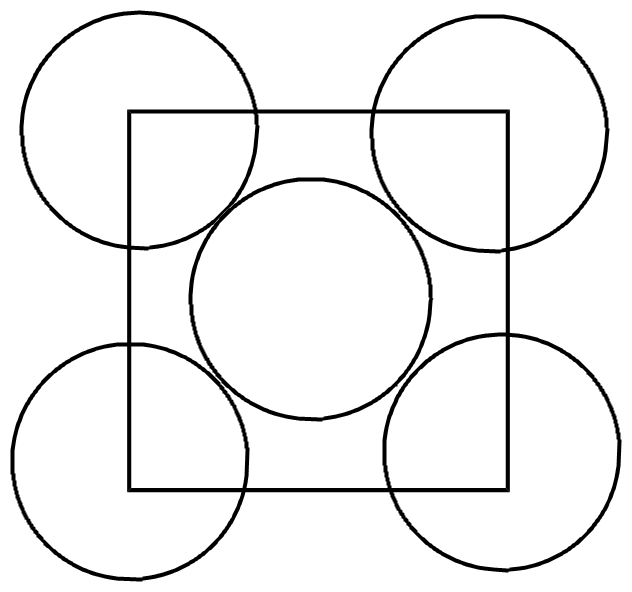Question
Question: Metal M of radius 50nm is crystallized fcc type and made of cubic crystal such that the face of unit...
Metal M of radius 50nm is crystallized fcc type and made of cubic crystal such that the face of unit cells is aligned with the face of cubic crystal. If the total number of metal atoms of M at all faces of cubic crystal is 6X1030 , then the area of one face of cubic crystal is AX1016m2.find the value of A.
Solution
A face centered cubic (FCC) unit cell contains atoms at all the corners and at the centre of all the faces of the cube. Each atom in a face -centered cubic located at the face-centre is shared between two adjacent unit cells and only 21 of each atom belongs to a unit cell.
Complete step by step answer:
Let us consider one face of unit cell,

No of atoms on one face= 4(corners)X81+1(facecentre)X21(facecentreshare)=21+21=1 per face
No of metal atoms of M at all metal faces of cubic crystal = 6X1030
Therefore, number of atoms on once face =6X1030X61=1030atoms
Hence number of unit cells at one face of crystal = 1030 atoms
So the number of unit cells at the edge of the crystal = 1030=1015
Metal M radius (r) = 50nm
Now, edge length of the unit cell = 24Xr=24X50nm
Edge length of cubic crystal = 24X50X1015nm
So, area of face crystal = =(edge length of cubic crystal)2=(24X50X1015)2nm2=216X50X50X1030X10−18m2=2X1016m2
Therefore, AX1016m2=2X1016m2
Hence , the value of A = 2.
Note: We know that any crystal lattice is made up of very large unit cells and every lattice point as occupied by one constituent particle (atom, molecule or ion). We must consider three types of cubic unit cells and for simplicity assume that the constituent particle is an atom.
